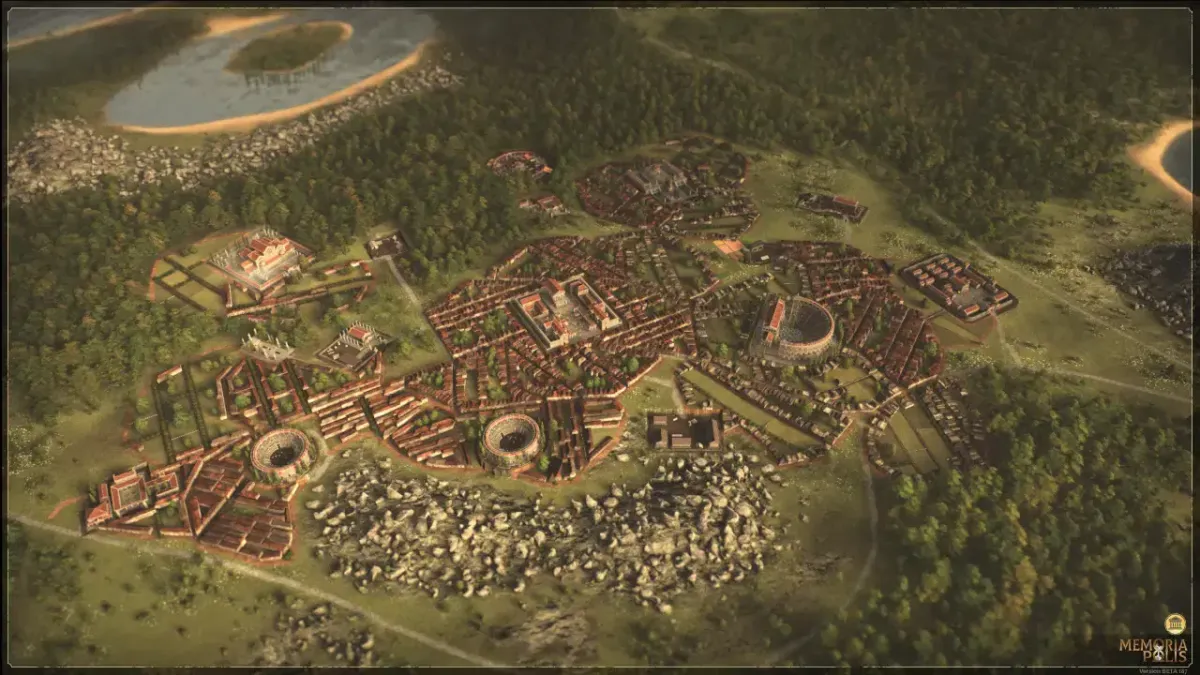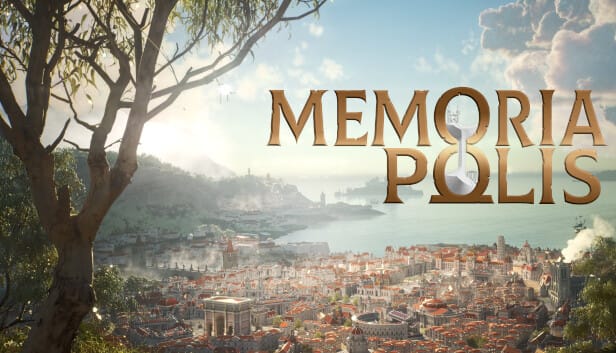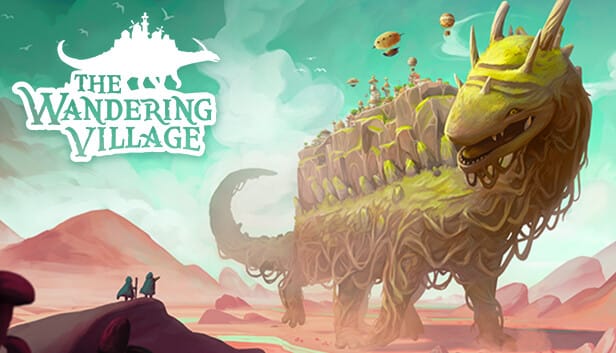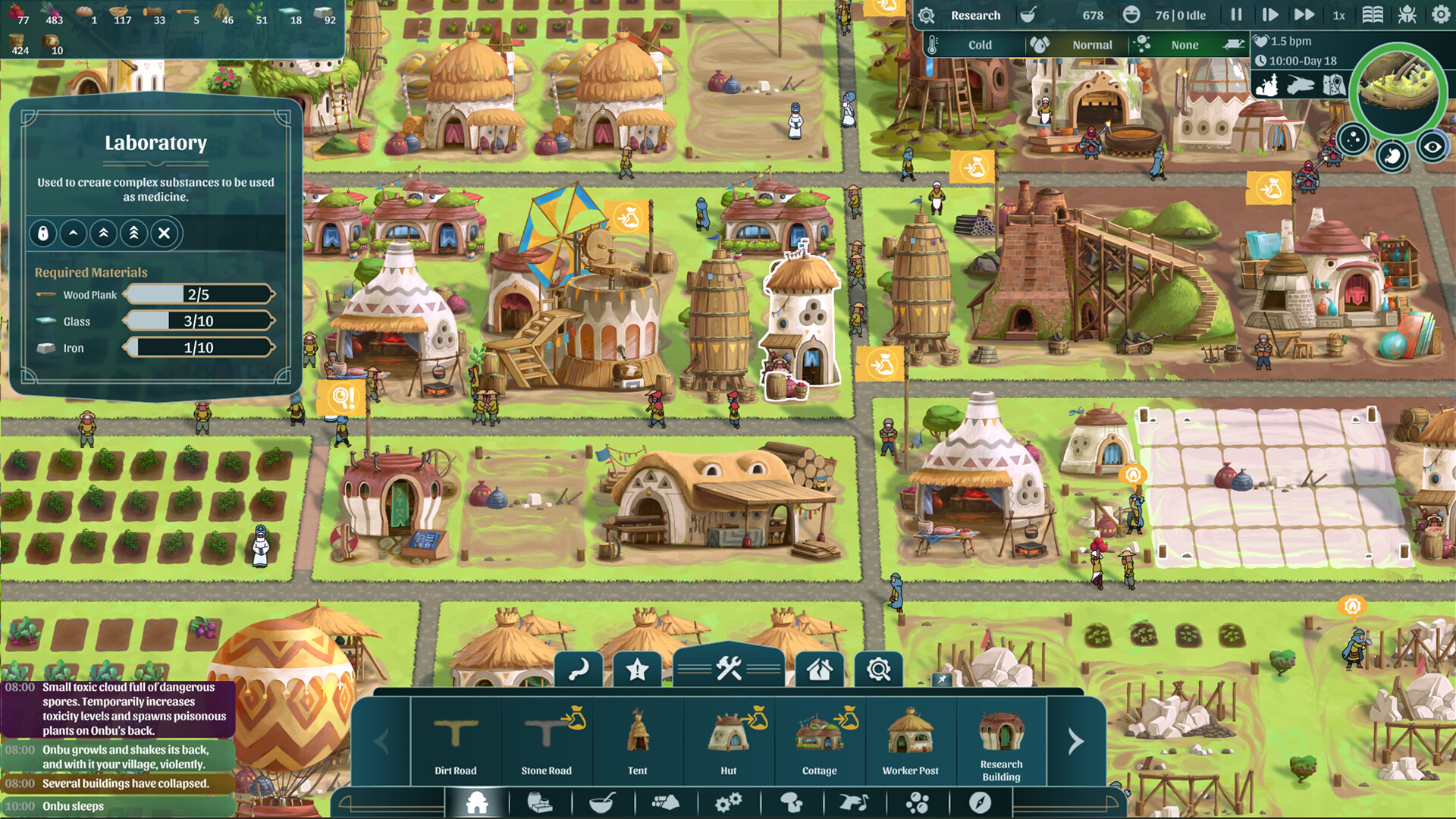Two Early Access city-builders with a twist
Memoriapolis and The Wandering Village take city-builders into parts unknown

Most city-building games are content to stick to a time and a place, whether that’s here, now!, the age of exploration, or out in space. You might unlock more powerful units or buildings, but you’re rarely pushing your city forward into an unknown future.
Not so with Memoriapolis, which launched in Early Access on Steam last month. Memoriapolis combines city building with a Civilization-like 4X twist—you’ll lead your city through four distinct ages of history, starting with antiquity, each with its own buildings, resources, and challenges.

MEMORIAPOLIS
Memoriapolis invites you to construct a city that spans 2,500 years of history, from Antiquity to the Age of Enlightenment. Choose your culture, manage resources, face historical events, build "Wonders" to achieve the status of Capital of Capitals and leave your mark in history!
Another twist: your city organically grows as a result of your actions. No need to lay out the perfect street plan—roads pop up when you construct new cultural or production buildings, or as new neighborhoods appear. You can influence where these roads and neighborhoods pop up, but you won’t be directly placing them on the map, and as of now, you can’t destroy them. It’s a fascinating constraint that, among other features, forces you to think about how your choices in antiquity will affect your game two or three ages down the line.
At least in theory. Right now, you can only play through the first two ages, with the final two promised by early next year. As with every Early Access game, you’re buying a beta build with the promise of additional features that may never come. What does exist is extremely promising. You can see how choosing one cultural path limits you in other ways, and imagine the compounding effects both positive and negative. Right now, it’s almost all imagination, but by early next year, Memoriapolis might be well worth your $25.
The Wandering Village doesn’t push you into an unknown future, but as you might’ve guessed from the title, it isn’t content to leave you in a single environment. You’re technically building your village in one place. That place just happens to be that back of a giant, lumbering creature your people call Onbu.

The Wandering Village
The Wandering Village is a city-building simulation game on the back of a giant, wandering creature. Build your settlement and form a symbiotic relationship with the colossus. Will you survive together in this hostile, yet beautiful post-apocalyptic world, contaminated by poisonous plants?
Onbu is almost always on the move, and early on, you have very little control over it. You have to be prepared for whatever biome might come next, whether that’s the hot, dry desert or the poisoned forests of the jungle. None of the biomes are perfect—there are always going to be resources from another biome you’ll wish you had. Your challenge, then, is to build your production chain such that it’s adaptable, flexible, and ready to take advantage of wherever Onbu takes you next.
Over time, you can choose to live in symbiosis with Onbu—feeding the fella, building trust—or exploit the creature for resources. The game does a good job of pushing most players into a grey area—you’ll be tempted to harvest Onbu’s back spikes, for example, as a quick source of rock and to clear space for more production buildings.

Despite the cartoony style, this is not a chill or cozy city builder—try switching to a new biome while managing a poison spore outbreak that’s killed a quarter of your village and hobbled food production and tell me how cozy it feels.
Like Memoriapolis, The Wandering Village is in Early Access, but with two years of development under its belt, it’s in a much more complete state. The current roadmap has an official 1.0 launch slated for the first half of 2025, with a few major updates planned before then. It’s listed at $25, but has frequently been on sale for 25% off.




